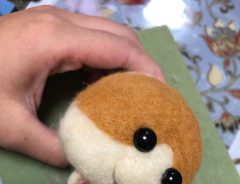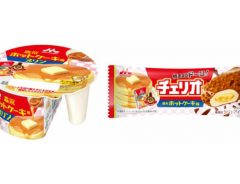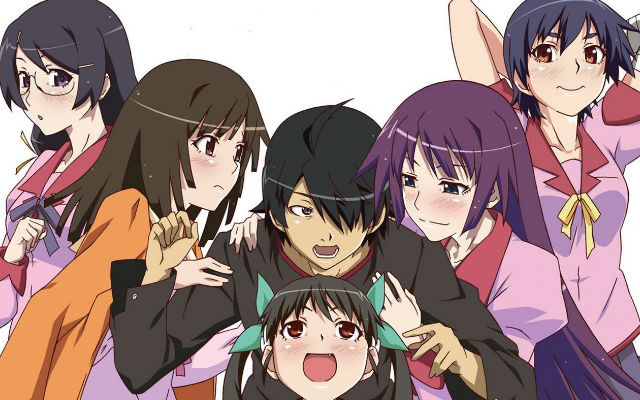- Tags:
- Anime / Japan / Tokyo Girls' Update
Related Article
-

Studio Ghibli Animation Merges With The Real World In This Brilliant Video
-

South Africa Ends Japan’s One Team Winning Streak to Move On to 5th RWC Semi-Final
-

Stay At A Magical Hogwarts-Inspired Airbnb During Your Next Vacation In Hakata City
-

Doai: Japan’s Deepest Train Station
-

Manga artist makes adorable Pui Pui Molcar felt plushie only for cat to give it manga panel punchline
-

Japanese Sweets Maker Combines Pudding and Pancakes In Super Convenient Packaging




We dive into anime and manga to escape reality and experience a world of imagination and fascination. While we submerge ourselves in the various storylines and situations of our favorite works, we also enjoy the often hilarious and hyperbolic happenings and settings of the stories. Here, we'll introduce 10 situations that would never happen in the real world.
1. When a character transforms, the enemy waits until the transformation is complete.
This is often seen in animes featuring robots, superheroes, and witches. Though viewers understand that the transformation scenes are the essence of these anime, think about it — if an enemy has the time to wait for the transformation to be complete, wouldn't they just attack?
2. Rushing to school while munching on toast: a cliché of shōjo manga!
When they wake up late, many anime characters stuff a piece of bread in their mouth and dash out the door. If this happened in a typical Japanese love comedy manga, the character might bump into the new transfer student/her future boyfriend after turning a street corner, feeling a spark of destiny. Rushing to school while still eating breakfast might seem weird, but viewers understand that the character is in a hurry, and the situation adds cuteness to that character.
3. A high school student lives alone for a mysterious, untold reason.
You might think this is normal, but living alone as a high school student is rare in Japan. But in the anime world, living alone seems to be a normal situation for high schoolers. Those who live alone are often depicted as kids who can handle studying and housework all by themselves. How perfect can an ordinary high school student be!?
4. The "bad kid" in school tends to hide their true kindness.
Such a character is often a friend or rival of the hero/heroine, serving as a foil to them. The term “gap moe” refers to this kind of character who looks antagonistic but sometimes shows a glimpse of kindness. In fact, you've probably seen a heroine falling in love with a bad boy after seeing him helping an abandoned cat on a rainy day. It is a good lesson to not judge people by appearance, but it's hard to come across a situation as simple as this in real life.
5. Behind a pair of glasses is a totally different face.
When a character takes off their glasses, it quite literally changes their face. This is a common way to wow the viewers, presenting a simple girl or boy who had no individuality as a princess or prince after removing their glasses. Since the change is so drastic, it would definitely be creepy if it happened in the real world. Additionally, it is surprising that the character is too oblivious to recognize their charm without glasses. On the other hand, there are characters whose eyes are shaped like the number 3, which happens mostly in comical scenes.
6. An ordinary protagonist suddenly reveals superhuman powers.
This is a common situation that pulls viewers and the main characters into the story by introducing a special power that the protagonist happens to have. When they encounter a mysterious object or animal, it awakens their dormant magical power that is necessary to save the world. Obviously this won’t happen in real life, no matter how much we might want it to...
7. What happened to discipline?? Colorful hair colors in Japanese schools.
Japanese teachers are very strict about the students’ appearance, and they always have something to say about their hairstyles and shoes. Even in schools with more lax regulations, students' hair colors are usually either brown or black. However, students in anime have extremely colorful hair — bright pink, blue, green, orange... With that said, it does help the audience make inferences about the characters' individual personalities.
8. Harems exist only around insensitive protagonists!?
The harem situation is a cliché of anime existing in everything from light novels to otome games. Insensitive heroes and heroines are often put in pleasant harem situations, which actually ends up placing more strain on the main story. Harem anime are enjoyed by both female and male otaku since the audience can put themselves in the shoes of the hero or heroine. Intriguingly, female harems are created around an ordinary boy who has no special features, while male harems are created around a cute girl, which also suggests that female audiences tend to imagine themselves as the character, while male audiences tend to harbor feelings of admiration for the lucky character.
9. Japanese image of European rich people? Typical characteristics of rich characters!
There is always a character whose family is rich. The typical rich girl character has long, blonde, ringlet curls and enjoys Lolita-like fashion. If she comes from a distinguished Japanese family, she wears a kimono and has long black hair, showing obedience toward her family.
10. Beginning with the end of a school club: A story of a club's recovery.
One of the most exciting moments as a Japanese high school student is getting involved in school activities. However, in anime, many clubs are on the verge of termination, and the members must take action to rebuild them. Not just clubs, but schools themselves also face abolishment, and students work to support the schools. LoveLive! is one example.